 A trust is a legal document through which you can transfer assets before and after your death. There are four components to the trust process:
A trust is a legal document through which you can transfer assets before and after your death. There are four components to the trust process:
- Grantor- the person who creates the trust (sometimes also called a settlor or trustmaker)
- Trustee- the person who handles the trust before and after your death, and is responsible for ensuring that your wishes regarding the trust are carried out
- Property- The assets (money, real property, etc.) that are placed into the trust
- Beneficiaries- The individuals or organizations who will benefit from the trust property, both during your lifetime and after you are gone
As the grantor, you can put requirements in the trust on how the trust and property are managed. These might include restrictions on distribution of the property, requirement that beneficiaries do or do not do certain things to receive property, and provisions regarding the paying and replacing the trustee.
A common misconception regarding trusts and estate planning is that trusts are only for the wealthy. This is not necessarily the case. The two primary estate planning benefits to having a trust can potentially apply to anyone who is leaving behind assets after their death. Probate can take months (sometimes years), and the accompanying court costs (filing fees, inventory fees, etc.) and attorney fees can eat into the estate. The probate process is also public – anyone can go to the local probate courthouse and review the file, and those interested in the process have a convenient forum to start a fight if they desire. On the other hand, transferring the assets and ownership in a trust allows a seamless transition without probate court involvement, and the trust is private.
A trust can be a powerful tool in helping accomplish your estate planning goals. Below are some common issues and pitfalls to keep in mind.
- Forgetting to fund the trust
Creating and executing your trust is the first step, but it is not the end of the process. Many people establish a trust and then forget to fund it. Remember, a trust is not complete until it is holding assets. Unlike most attorneys, our firm will assist you with the trust funding process to make sure your trust works the way you need it to work if you become incapacitated or after you are gone.
- Not keeping the trust current
Don’t create and fund your trust and then forget about it. Life changes, and the provisions you made in the trust document twenty years ago might not be appropriate today. Make sure to periodically revisit your trust with your estate planning attorney, especially if your family, health or finances have changed.
- Going the DIY route is ill-advised
Having an experienced estate planning attorney draft your trust is worth paying for. You get the peace of mind from knowing your affairs are properly in order, and it can actually end up saving money in the long run. A mistake at the beginning could lead to your estate ending up in probate anyway where it would be subject to the court and attorney fees.
Glenn Matecun is proud to help the people of Michigan with their estate planning needs. We have offices in Howell and Clinton Township. Visit our website to learn more and schedule a consultation.
